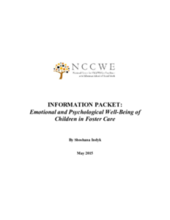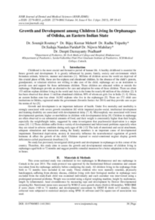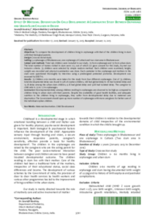Displaying 331 - 340 of 496
This KIDS COUNT policy report highlights the benefits of family care for children and the need to prioritize family settings for all children in the child welfare system in the United States.
This information packet presents an overview of facts, statistics, policies, legislation, best practices, model programs, and additional resources related to the US child welfare system and the emotional and psychological well-being of children involved in that system.
This study was aimed at assessing growth and developmental outcomes of children living in orphanages in Odisha, India aged birth to 72 months and to make recommendations for “possible remedial measures” for addressing poor growth and developmental outcomes for children in institutions.
In this brief article, the authors make their case for extending the age limit for young people to receive care in the foster care system, focusing on the UK and the US.
This study sought to understand gender differences in potentially traumatic events (PTEs) in orphaned and separated children in 5 low- and middle-income countries (LMIC): Cambodia, Ethiopia, India, Kenya and Tanzania.
This review discusses the worldwide phenomenon of child institutionalisation and assesses scientific evidence on the developmental effects of early institutional care.
This study compares the development of children living in orphanages with that of children living in slums with their biological parents in Odisha, India.
This quantitative study of 575 South African children compared their resilience in terms of individual, family and community protective factors across seven sites, including child and youth care centres, schools in poor communities and schools in middle-class suburban communities.
The purpose of this qualitative study was to understand the experiences of grandparents in the US and the challenges they face raising their grandchildren.
This paper reviews the literature on foster care and explains the issues that foster children in Canada experience.





